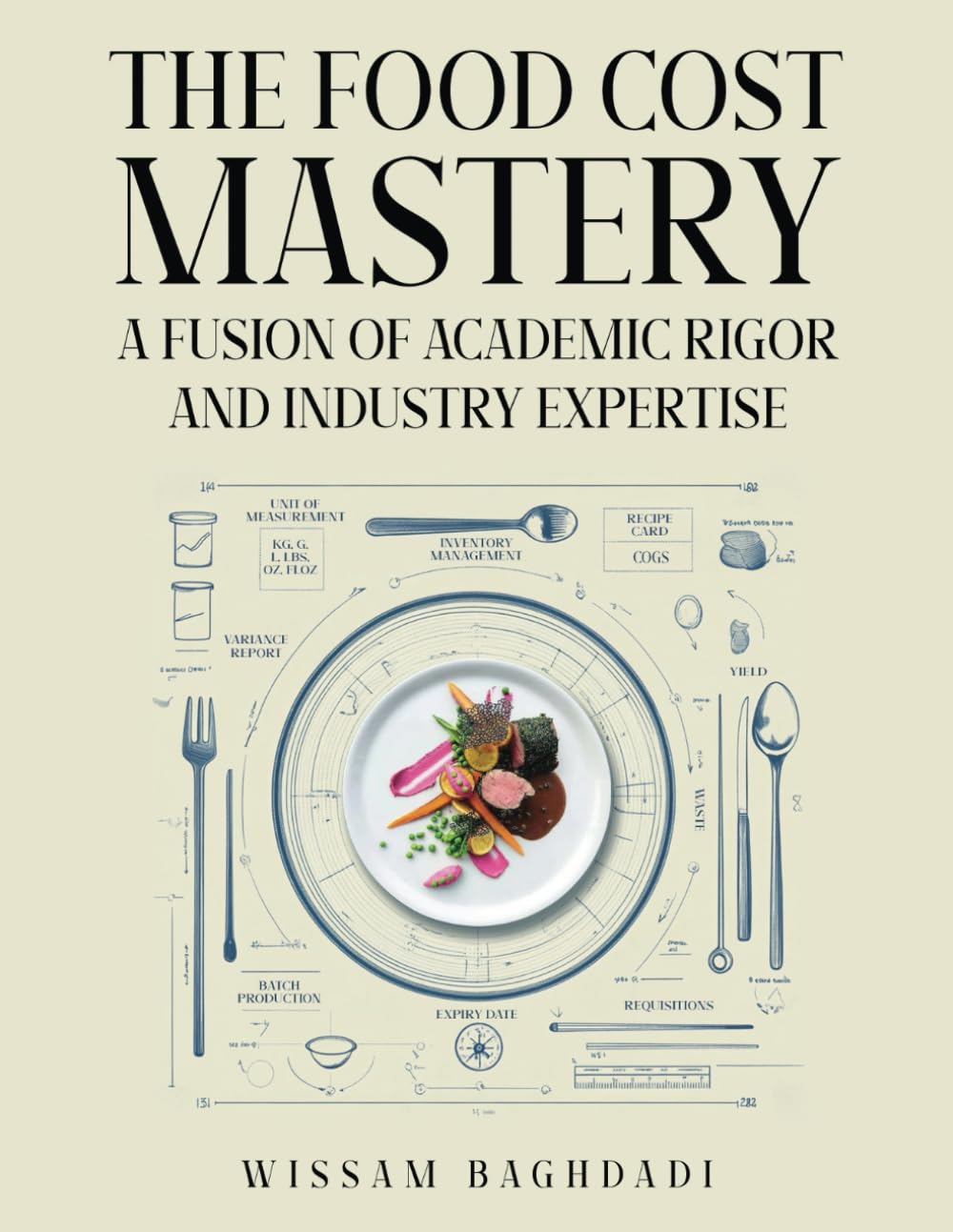
In the fast-paced world of restaurant operations, the quality of service can make or break a customer’s experience. Investing in staff training and development is essential for improving service quality, reducing waste, and enhancing overall operational efficiency. By fostering a culture of continuous learning, restaurant owners and managers can create an environment where employees are empowered to deliver excellent service while contributing to the restaurant’s profitability. This blog draws on insights from The Food Cost Mastery: Fusion of Academic Rigor and Industry Expertise by Wissam Baghdadi to explore how training and development can be leveraged to improve restaurant operations.
1. The Importance of Training for Staff Efficiency
Staff efficiency directly impacts the smooth running of restaurant operations. Baghdadi emphasizes that well-trained employees are more likely to perform tasks with greater speed and accuracy, reducing errors and delays. Training employees on standard operating procedures (SOPs) helps streamline processes, from food preparation to customer service, ensuring that staff knows exactly what is expected of them.
For instance, training in efficient kitchen practices can minimize food waste, while training in customer service can improve the dining experience, leading to higher customer satisfaction and repeat business. When employees understand their roles clearly and are equipped with the necessary skills, the restaurant’s operations run more smoothly, improving overall efficiency.
2. Enhancing Service Quality Through Development Programs
Effective training programs are an investment in the restaurant’s future. Baghdadi’s research highlights that comprehensive training programs not only improve staff performance but also enhance service quality. This includes everything from knowledge of the menu to handling customer complaints. Service excellence is a key differentiator in the competitive restaurant industry, and a well-trained team is vital for ensuring that every guest receives a top-tier experience.
Training staff to upsell menu items, explain specials, and provide personalized recommendations can boost sales while ensuring a positive customer experience. Additionally, proper training in handling special requests or dietary restrictions ensures that customers feel valued and understood, leading to better service outcomes.
3. Reducing Waste Through Efficient Practices
In the restaurant industry, waste is both an environmental and financial burden. Baghdadi underscores the role of training in reducing waste, particularly in food handling, inventory management, and portion control. By educating staff on proper food storage, safe handling practices, and waste reduction strategies, restaurants can cut down on unnecessary losses and minimize food costs.
For example, training kitchen staff to accurately measure ingredients and avoid over-prepping can significantly reduce food waste. Similarly, educating front-of-house staff on the importance of managing guest expectations and portions can prevent unnecessary waste from being sent back to the kitchen.
4. Fostering Employee Satisfaction and Retention
Training and development programs not only improve operational efficiency but also contribute to employee satisfaction. Employees who receive ongoing development opportunities are more likely to feel valued and invested in the restaurant’s success. Baghdadi notes that employee retention is crucial for maintaining consistency in service, and providing training opportunities can foster loyalty among staff.
Investing in staff development also creates a positive work environment where employees feel supported in their career growth. This reduces turnover, which is often costly and disruptive to restaurant operations. Retaining experienced staff ensures that the restaurant can maintain high standards of service and reduce the need for constant retraining.
Training and development are essential components of a successful restaurant operation. By investing in staff training, restaurants can improve service quality, reduce waste, and increase operational efficiency. As Baghdadi emphasizes, developing a culture of continuous learning and improvement not only enhances the guest experience but also strengthens the bottom line. A well-trained team is a key asset to any restaurant, driving both profitability and customer satisfaction.
Leave a Reply